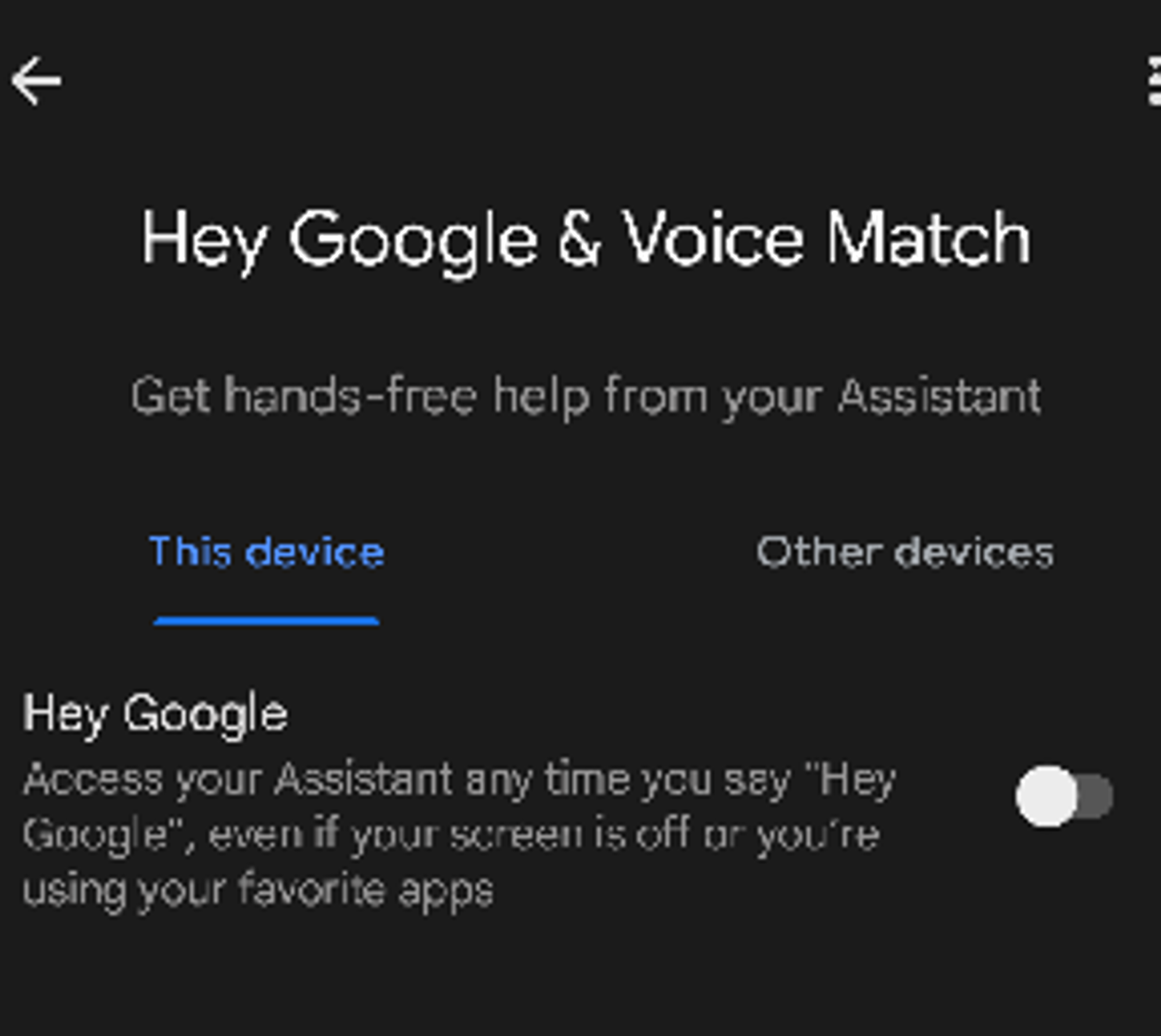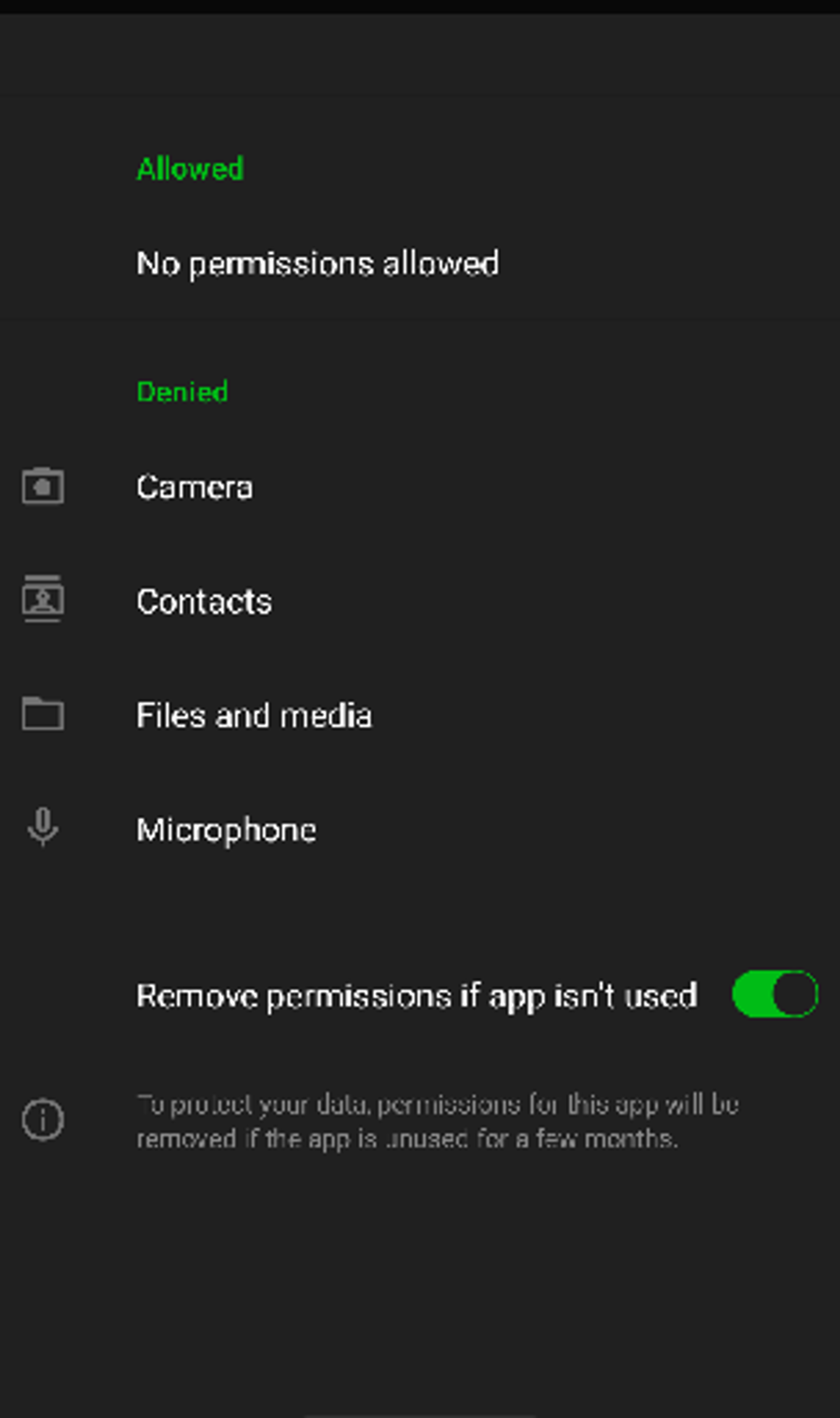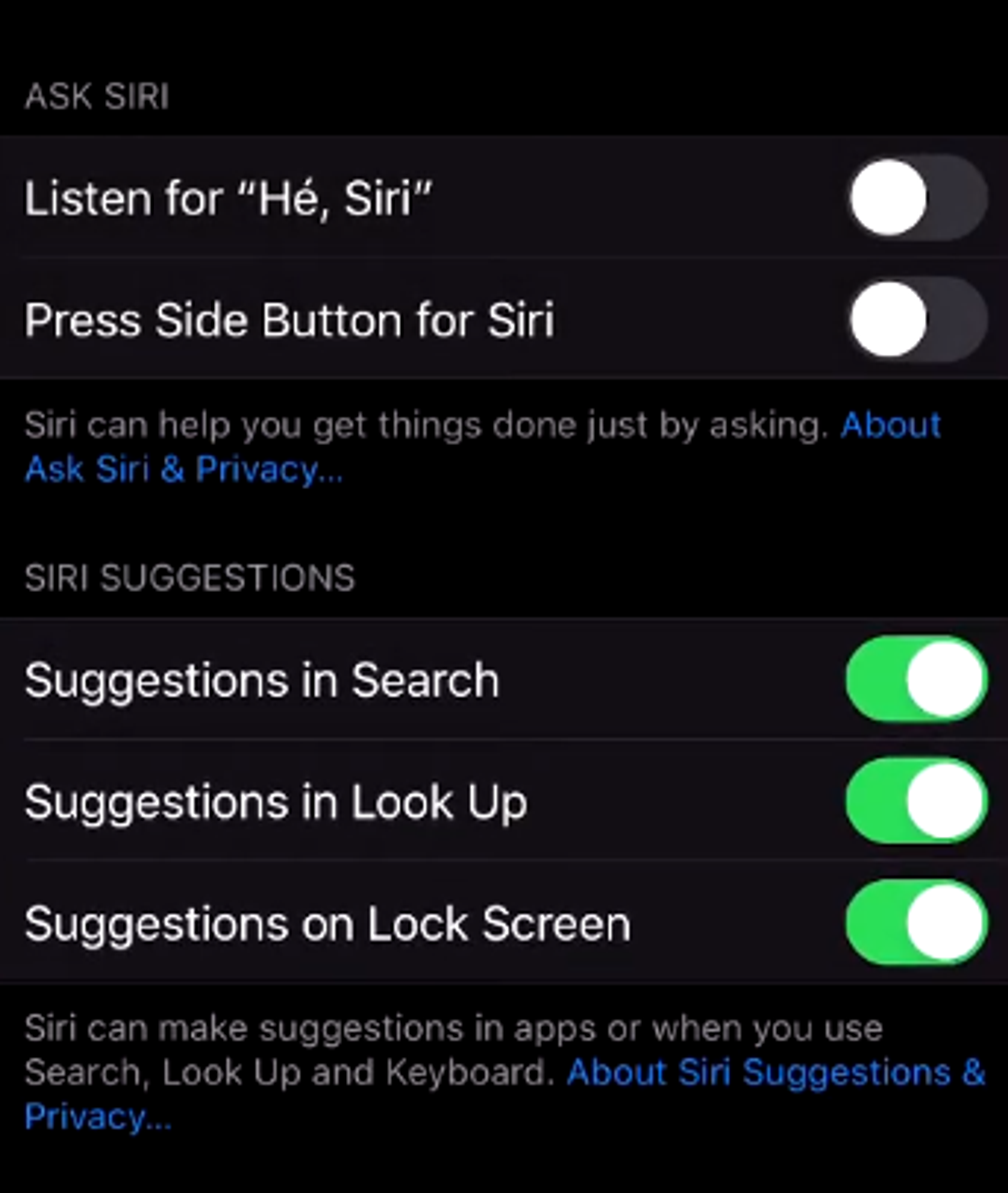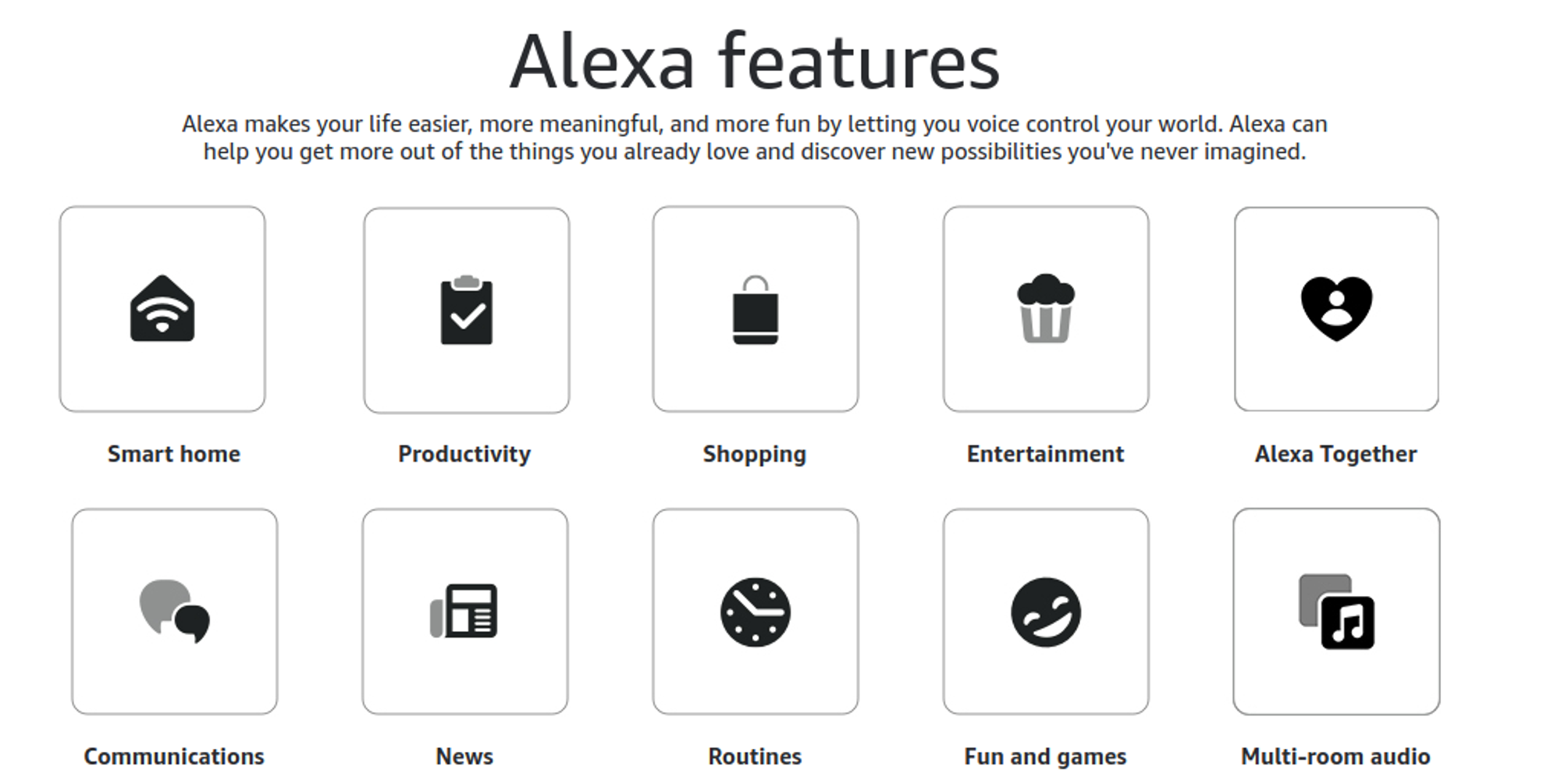Is My Phone Listening To Me?
date
Apr 7, 2022
slug
is-my-phone-listening-to-me
status
Published
summary
Thirty years ago, asking this question might have gotten you some funny looks. Today, the world has changed, making this entirely from in the realm of possibility. So, when asking, “Is my phone listening to me,” the answer to this question is typically yes.
tags
Website
type
Post
featured_image_url
Author
Berktug Mutlu
category
IoT
meta_title
Is My Phone Listening To Me? - FastVPN
Thirty years ago, asking this question might have gotten you some funny looks. Today, the world has changed, making this entirely from in the realm of possibility. So, when asking, “Is my phone listening to me,” the answer to this question is typically yes.
However, an actual answer does require a bit more digging. So to find out how your phone listens to you and what you can do to prevent it, keep on reading.
Does My Phone Hear My Conversations?Does My Android Smartphone Listen To Me?Does My iPhone Listen To Me?Can My Phone Legally Listen To Me?How To Stop Your Phone From ListeningOption One: On Android SmartphoneOption Two: On iOS DevicesOption Three: Covering Your DevicesWhat About Amazon Alexa?Why Does My Phone Listen To Me?Hands-free CommandsTo Fulfill Smart Home NeedsVoice-based Marketing CampaignsPersonal Information GatheringOther Tips for Smartphone Privacy and SecurityDon’t Download APKs From Unofficial SourcesMaintain an App AntivirusDouble-Check Your App PermissionsKeep Your Software Up To DateDelete And Check Your History (Voice and Cache)Get A VPNConclusion – Why Advertisers Don’t Need Voice Commands
Does My Phone Hear My Conversations?
Your phone does have the ability to listen to your conversations. However, providing access to those sound bites depends on the type of phone you want.
Does My Android Smartphone Listen To Me?
Sound bites that google gathers under an account with default activity will contain a history of what Google collects. You can find it through the following steps:
- Go to “Google My Activity” while logged into your account
- Click on “Web & App Activity”
- Scroll down and make not of the subsetting for “Include voice and audio activity.”
- Check out your list of voice clips below.
Finding this out is a bit of a shock to most people, as they might believe Google is a bit more privacy-centric. While Google does take some effort to “protect” your data from malicious invaders, it does hold majority control over what information it handles.
By clicking the “include voice and audio activity” box, you tell Google to stop storing your voice data. However, this will not prevent it from listening. For that, you’ll want to keep reading below.
Does My iPhone Listen To Me?
Siri, iPhone’s voice assistant, also has a habit of listening to you. However, because they don’t have a search engine, iPhone’s system is more straightforward. However, your iPhone does also listen to you. Below, we will tell you how to prevent this listening.
Can My Phone Legally Listen To Me?
You might recall a terms and conditions page when you first made a Google or Apple account and used their voice assistance software. Accepting these Terms and Conditions gives Google permission to take your voice clips and do what they please, making it legal.
In cases where you disagree with the collection, you can choose to deny the terms of service. However, Google will not allow you to use their service in that event.
In addition, modified versions of this terms of service agreement appear on your smartphone.
How To Stop Your Phone From Listening
Option One: On Android Smartphone

- Under settings, search for “default digital assistant app.”
- Tap the gear next to your default app
- Tap “Voice Match”
- De-select the “Hey Google” voice settings
If you have other smart home devices you don’t want to listen, tap the “Other devices” selection from above. You might find your smart home features more difficult to manage when disabling.
You might also need to disable voice commands for your apps:

- Go to “Application manager.”
- Tap “App Info”
- Scroll to find the apps that use voice commands (you can also use the app search on the top of the screen)
- Tap on your app and find the “permissions” settings
- Diable the settings for microphone access
Option Two: On iOS Devices

- Open “settings”
- Tap “Siri & Search”
- De-select the “Listen for ‘Hey Siri'” pill
- You can also choose to disable Siri entirely on this page
As you might imagine, you also need to disable the app-based access to your microphone as well:
- Go to “Privacy” under “Settings”
- Tap “Microphone” and de-select the pills next to everything
Doing both will eliminate your use of the service. This way, your iPhone won’t be listening for the command to activate.
Option Three: Covering Your Devices
For extra levels of security, you might consider covering your microphone with tape. While this option is a bit cave-man-like, it’s more of an issue if you have common malware issues through your computer.
You can also do this with your phone, but this isn’t a great option given you take calls on it. Instead, covering your devices should refer to putting them into airplane mode or disabling the data-based services.
What About Amazon Alexa?

Alexa, Amazon’s voice assistant, is a secondary default voice assistant for those who have more Amazon devices. You probably know about this if you own an Echo Show or Dot.
Because Alexa depends on your installation, it isn’t required to have it on your phone. Because of this, “disabling” Alexa is just not installing it on your phone.
To uninstall an app on Android, follow the steps above to go to your app management page. Instead of selecting permissions, tap the “Uninstall app” button instead. You can also hold your finger down on the app icon and wait for an “x” to appear. Dragging your app onto the “x” will delete it.
If you want to uninstall an app on your iPhone, hold your finger down on the app, wait, and tap the “remove app” button that pops up.
However, if you own Amazon’s lineup of smartphone gadgets, you might want to think twice. Amazon is notorious for using its data for programmatic advertising.
Why Does My Phone Listen To Me?
Whether you own products from Apple or Google, your data is valuable to them. This is because megacorporations have a unique data gathering method: through your services.
Voice-based services are a relatively new area of data gathering. So how can your services use this data and listen to you? Here are the common reasons on the user-side of things:
Hands-free Commands
Despite evidence that you are still distracted when talking to your phone, hands-free commands are better than browsing Facebook while careening down a highway. In this way, you can make calls and change between music on your playlist while driving.
Sometimes, using hands-free commands area neat feeling regardless of where you are. Asking your phone about recipes or trivia without needing to touch it is neat. So there are plenty of reasons for users to look at voice commands.
To Fulfill Smart Home Needs
Voice assistants are great for fulfilling that ideal smart home. Talking your lights on is an excellent way of getting home. You can also change the channel on your smart TV without moving a muscle.
Setting up a smart home typically requires you to establish some voice commands. However, you can also use smart plugs and schedule if you don’t want to put forth the effort of talking.
Of course, not all listening is for the benefit of the use:
Voice-based Marketing Campaigns
Vocal channels are an excellent way for a company to respond with advertising. What you say allows shopping apps to react with appropriate products.
Sometimes the information you give to these vocal apps by speaking to them comes back later. For example, Amazon Alexa allows you to establish wish lists. Amazon will remind you of those wish lists, especially when there is a sale.
While Siri and Google Assistant are a bit less of a culprit on this, you still run into these issues occasionally. For example, finding services near you allows Google of Apple to favor specific locations. Companies are entirely investing in voice-based commands.
Personal Information Gathering
Companies mention how they use your data in their services’ Terms and Conditions section. Typically, you’ll find that they make it reasonably clear that they use your data for advertising products to you most of the time.
These companies bank on the hope you don’t read those privacy policies. So instead, they use your personal information to develop marketing data on you. They sell this data to third parties but get around this by selling the opportunity to advertise from their platform to you.
This voice data includes what you search for, your voice profile, your name, your address, and the services/products that could target you around them.
Other Tips for Smartphone Privacy and Security
Because Google or Apple have numerous ways to gather your information, restricting voice data is only part of your battle. Here are some other tips you can use.
Don’t Download APKs From Unofficial Sources
APKs, or the download files for your apps, can be found on numerous websites. You might discover off-site companies with a fix or a restriction for voice commands on these third-party sites. However, many of those sites offer no solutions.
Off-site APKs not available on the Google Play Store or the Appstore might contain malware. Malware will eliminate the usefulness of all your privacy attempts, sending data directly to an unwanted source. So never download these APKs from unofficial sources.
Maintain an App Antivirus
If you get a virus anyway, having an antivirus will help you. Antiviruses can take all forms of data (voice data included) and use them to steal your financial information.
Hackers are getting incredibly deceptive, duplicating your voice patterns by listening in. By maintaining a smartphone antivirus, you can avoid some of the riskier issues from talking to and using your phone.
Double-Check Your App Permissions
You can also use the steps above for disabling your app permissions on Android to disable other permission. Some of these permissions are needless. For example, you don’t need to provide your contact list data if the sole purpose of your app is to make funny noises when you press a button.
Use your critical thinking skills to determine what app permission are necessary. If possible, avoid sharing any information with the apps you install. The less you give, the less exposure you have if a data breach occurs.
Keep Your Software Up To Date
Out-of-date software is a common cause of data breaches and significant issues. App updates often exist to resolve exploits. So if you don’t update your software regularly, you are potentially exposed.
Go to your respective store (Google Play or Appstore) to check for updates. You can also use the settings via these apps to ensure your apps stay updated automatically.
Delete And Check Your History (Voice and Cache)
Your voice and chat history are made available via your Google account. You can find that account through this link. Apple accounts don’t allow you to delete your data, but they typically collect less than Google. However, you can choose to delete your Apple account with relative ease.
You should also remember to remove your app cache if possible. You can do this easily through third-party software like CCleaner. Otherwise, you can tap the “clear cache” links to their respective app management pages.
Deleting your app cache will delete your voice history data on apps you’ve used prior. However, you’ll need to check with these companies individually to see if they store your vocal data.
Get A VPN
While VPNs won’t protect your voice data, they will cover any associated data. Encrypting your data behind a military-grade cipher will prevent you from exposing unwanted information.
It’s crucial to understand that virtual private networks are great for hiding data you don’t intend on sharing. But account data, including voice data, isn’t something a VPN can cover.
Check out our article to find out more information on what your VPN hides (and doesn’t hide).
Conclusion – Why Advertisers Don’t Need Voice Commands
If you’ve created an account to use vocal commands, those advertisers don’t need your voice commands. The personal data you’ve provided via account creation is often enough to target you. So voice protection is only part of your effort.
To ensure you remain secure when using voice commands, it’s essential to check your account settings. By studying this alongside your app permission, you can pretty easily control where your voice goes. The main risk comes from unwanted advertising exposure. You might also have someone attempt to duplicate your voice if they want to steal your financial data.
To ensure you remain protected across the board, download The Fast VPN. While it won’t prevent account data from getting out, it will save other pieces of essential data hackers, and advertisers need to get the complete picture.